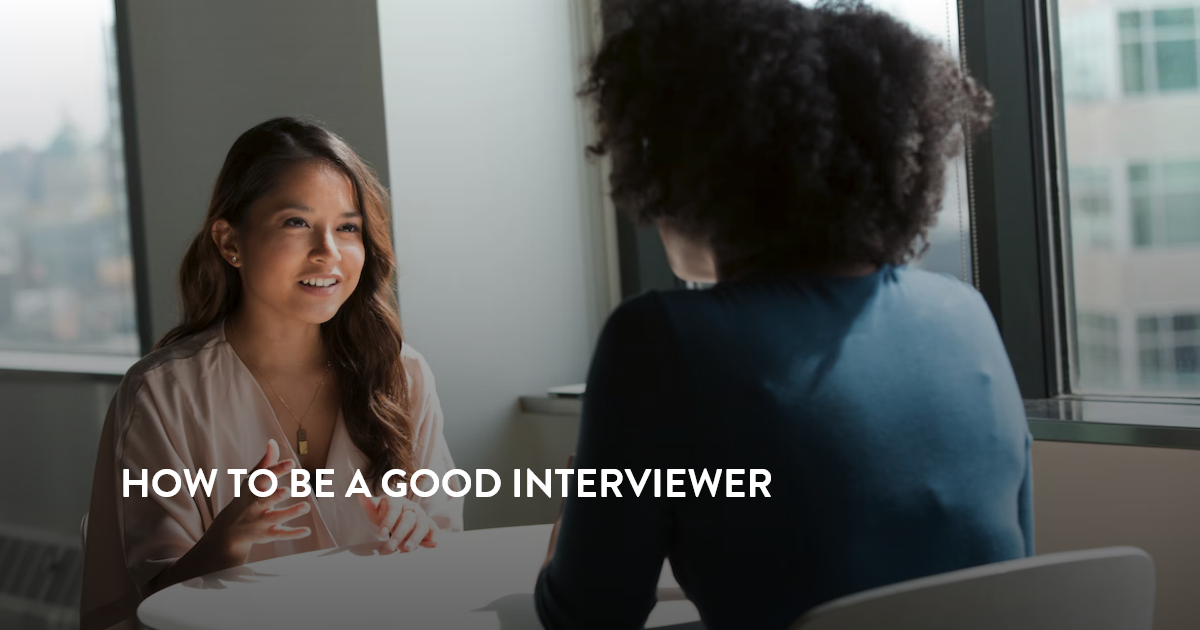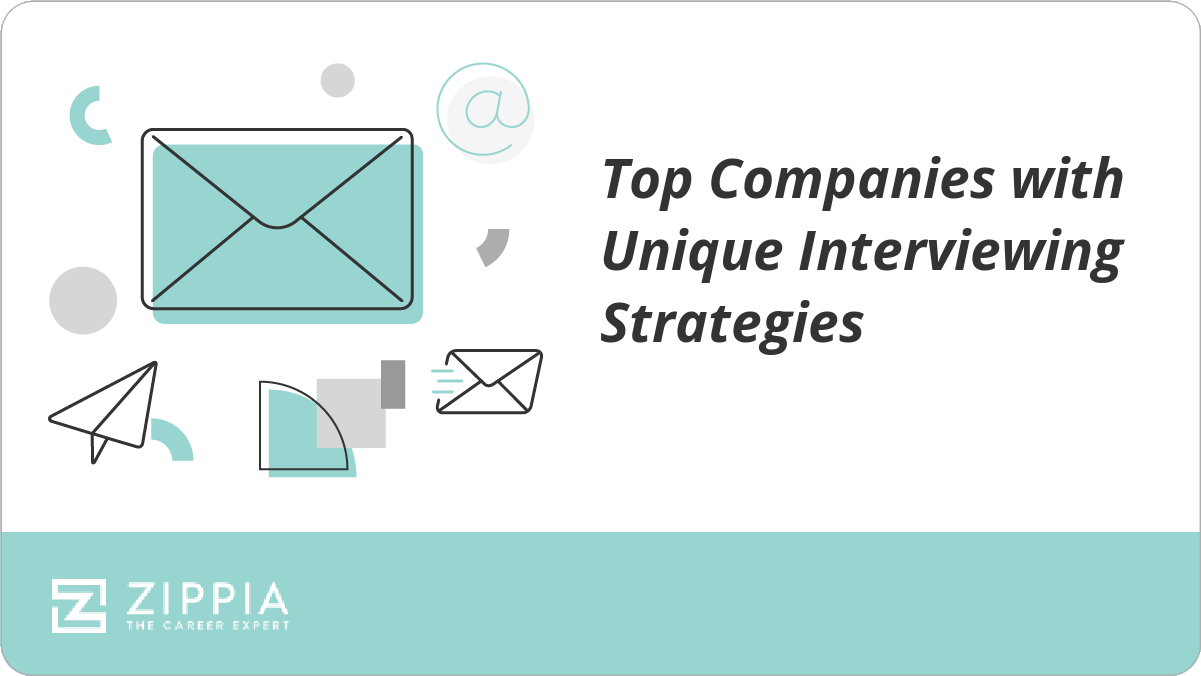Everybody’s got a story about the first interview they ever gave: awkward silences, inappropriately personal questions, knocking over a coffee cup… If your number is up and it’s time to conduct your first interview, you’ll save yourself a lot of red-hot-cheek memories with a bit of preparation and practice.
These thoughts come primarily from an experience I recently had in what turned out not to be my dream job. Now, I’ve been a hiring manager a couple of times in my career, so I can sympathize with the poor guy on the other end of the video call. I’m not 100% sure it was his very first interview, but it had to be pretty close!
So here are ten tips, from my recent experience with a newbie interviewer, on how not to look like a novice hiring manager, even if you are.
Key Takeaways
-
Reach out to the candidate ahead of time to introduce yourself and clarify how the interview will be conducted.
-
Start the interview with some small talk and an introduction of your company and the position.
-
Ask your questions conversationally and make sure that they’re relevant to both the position and the candidate.

10 Tips for Convincing People You’re an Expert Interviewer
-
Personally Be in Touch With the Candidate Before the Interview
I was contacted by someone called Georgina who suggested an interview at 12:30 p.m. No problem. Imagine my surprise at seeing a man in a suit on the other end of the Skype call! It totally threw me off and made the first few seconds a little bit awkward.
It’s not necessarily more impressive to have your secretary set up the meeting. Make sure you’ve been in touch at least once before the interview, even just to say ‘Hi, looking forward to chatting then!” Or, at minimum, have your secretary tell the candidate who will be interviewing them!
-
If It’s a Zoom Call, Clarify That It Will be With Video
When the Managing Director (who was, as we now know, not a woman called Georgina) hit the video button so I could see him, I panicked and hit my button also. That was a bad idea. I hadn’t done my hair, thinking it would just be a voice call.
It was my fault for being under-prepared, but still, he hadn’t specified that it would be a video call. As a courtesy to your applicant, specify that it will be a video interview over Zoom in your emails when setting it up.
-
Get Good at Small Talk
The above two circumstances made for a couple of awkward first few seconds that could have been righted by more in-depth questions than “You’re currently in Australia, right?” It’s not the interviewee’s responsibility to make small talk – it’s considered rude for me to jump in and start asking how long you’ve been working at the company, if you like London, and whether you’ve traveled much the past year.
I know… when you’re nervous, you want to get to the bit that makes you feel safe – the structured questions. It’s important to take a breath, relax and pretend you’ve met this person at a party and need to talk to them long enough to finish the last sip of your drink.
-
Introduce Your Company
If you’re still floundering for conversation, a perfect icebreaker is to introduce your company. Allow the candidate to ask questions as you talk. This interviewer seemed to be more intent on testing my own knowledge about his company than giving me a feel for his own passion and vision for it.
-
Ask Relevant Questions
This is about designing your interview to give you a decent impression of the person’s fit for your organization. Don’t include a question just because you’ve read it’s a good one to put in and will show a candidate’s ability to ‘think on their feet’. Scrap the typical questions around examples of being a team player, etc. These qualities can’t come out in an interview; they must be demonstrated in some sort of group activity.
-
Make It a Conversation, Not a List
There’s nothing that feels more forced than someone reading off a list of questions. I get that you need to clarify certain things and want to ask similar questions of all your candidates to make it fair. You’re also probably nervous and need something to remind you what it is you’re supposed to be doing. Natural interviewing only comes with practice, so grab every member of your family and current staff and make them interview for your open role and then give you feedback on how you did.
-
Show That You Have Read the Candidate’s Resume
Did he read my resumé? I don’t know! He never mentioned it. He never explained why they thought I’d be worth a second interview. He never asked any questions about any of my roles.
A great tip to make your questions more conversational is to tie something the candidate says into something you know about their history. “Yes, I see your major role was with Company ABC, what skills did you learn there that would be helpful in this role do you think?”
On the opposite side of this, I’ve had recruiters go through each role with a fine-tooth comb, asking why I left and writing down my direct manager’s name. That’s fine for a couple but cross-examining a candidate over every role is a waste of time and feels more like an interrogation than an interview.
-
Ask Questions About Their Responses
Another tip for making it a conversation: you know when a candidate gives an answer and you pause while you finish writing down their answer and then say, ‘Ok, cool’ and move onto the next question without looking up?
We hate that. It feels like you didn’t really digest anything we said. Also, you’re not really gleaning the most you could from a candidate’s response. They’ve given you a top-layer answer because it has to be 2-3 sentences. Pick the part that actually interests you and drill down a little. Again, it’s an interview, not an interrogation.
-
Give Appropriate Timelines for Your Hiring Process and Find Out if That Suits the Interviewee
At the end of the interview, the Managing Director informed me that they had a few more interviews in the next couple of weeks and that they would be in touch after that. I’m at third-round interviews with a place in Australia, so by the time they get to the second round, I’ll probably have signed a contract (unless something goes a bit wrong). Assuming the candidate will be around in a few weeks, especially if you’re aware that they are currently unemployed, is amateur.
Show that you’re aware that the candidate may have deadlines by asking if they have any other opportunities coming up that you might need to be aware of if you are considering taking it to the next stage.
-
Tell the Candidate About the Role and Then Ask if They Have Any Questions
If all you’ve put up is a job description, they’re going to want more information to find out if the role is really suitable. Show your passion for the fact that someone is going to be coming on staff and what they’ll be doing by describing the role in your own terms. This is the point where you get to sell the role and excite the candidate about your business.
Of all the tips above, practice is the key one. You’ll feel a little dorky when practicing but will be like a fish in water when that person is sitting on the other side of a table or laptop.
Convincing People You’re an Expert Interviewer FAQ
-
What are the qualities of a good interviewer?
The qualities of a good interviewer are a friendly attitude, knowledge of the job, conversational skills, and the ability to control their emotions.
A good interviewer must be friendly in order to put the interviewee at ease and get a sense of who they really are. They also must know a good amount about the job they’re trying to fill, as otherwise, they won’t understand what they’re looking for in a candidate.
In addition, a good interviewer must be able to keep a conversation moving smoothly and effectively, and they must be able to control their reactions — positive or negative — to anything the interviewee might say.
How can I be an effective interviewer?
To be an effective interviewer, you must be able to engage in small talk, know how to ask open-ended questions, and know how to listen actively.
The best interviewers put candidates at ease by leading a short conversation of small talk before getting into their questions.
They also ask questions that require more than a yes or no answer and open the door to drilling down deeper with follow-up questions. Finally, effective interviewers are active listeners, which means they’re making eye contact, taking notes, and asking follow-up questions as the candidate talks.
What should interviewers avoid?
Interviewers should avoid making quick judgments, talking too much, and being unprepared.
Good interviewers know that making snap judgments about candidates can be dangerous. Instead, they keep an open mind and ask follow-up questions about anything they’re unclear on.
Interviewers should also focus on letting the candidate talk, which may sound obvious, but it’s all too easy to dominate an interview with stories and information about your company or the position — especially if you’re passionate about it.
In addition, interviewers need to be prepared, which means having a list of questions at the ready, going over the candidate’s resume before they arrive, and having a paper and pen ready for taking notes.
- Interviewer Tips
- Structured Interviews
- How To Be A Good Interviewer
- Interview Note-taking
- Memorable Candidate Interview Moments
- Top Companies With Unique Interviewing Strategies
- How To Be A Consistent Interviewer
- Topgrading Interview Process
- How To Use Technology To Screen Interviewing Candidates
- How To Make A Great Impression With Your Candidates
- How To Be An Expert Interviewer
- How To Build Rapport During An Interview
- The Do's And Dont's Of Personality Testing
- What To Pay Attention To When Conducting Interviews





